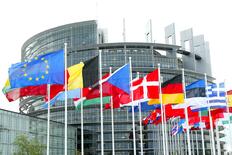- The scheme involves a €170 million investment to support renewable hydrogen production using Power-to-X technologies.
- It aims to construct up to 200 MW of electrolysis capacity, with aid awarded through a competitive bidding process in 2023.
- The new electrolysers are expected to reduce greenhouse gas emissions by approximately 70,000 tonnes of CO2 annually.
- The scheme aligns with EU goals to achieve 45% renewable energy by 2030 and carbon neutrality by 2050.

Overview
The European Commission has approved a €170 million Danish scheme to support the production of renewable hydrogen through Power-to-X (PtX) technologies. This initiative aligns with the EU Hydrogen Strategy and the European Green Deal, contributing to the REPowerEU Plan to reduce dependence on Russian fossil fuels and accelerate the green transition.
Details of the Scheme
Denmark plans to introduce a €170 million scheme to upscale the production of renewable hydrogen and derivatives like ammonia, methanol, and e-Kerosene using PtX technologies. The scheme will support the construction of up to 200 MW of electrolysis capacity, with aid awarded through a competitive bidding process in 2023. The aid will be in the form of a direct grant for ten years, and beneficiaries must comply with EU criteria for producing renewable fuels of non-biological origin.
Environmental Impact
The new electrolysers are expected to reduce greenhouse gas emissions by approximately 70,000 tonnes of CO2 annually across various sectors, including industrial, mobility, and energy. This initiative will help Denmark achieve its goal of reducing greenhouse gas emissions by 70% by 2030 compared to 1990 levels and reach carbon neutrality by 2050. It also supports the EU's 2030 renewable energy production target, proposed to increase to 45%.
Commission's Assessment
The Commission assessed the scheme under EU State aid rules and found it necessary and appropriate for facilitating renewable hydrogen production and decarbonizing key sectors. The measure has an "incentive effect," as beneficiaries would not invest without public support. The scheme includes safeguards to limit its impact on competition and trade within the EU, ensuring that aid is kept to the minimum necessary and selected through an open, transparent, and non-discriminatory process.

